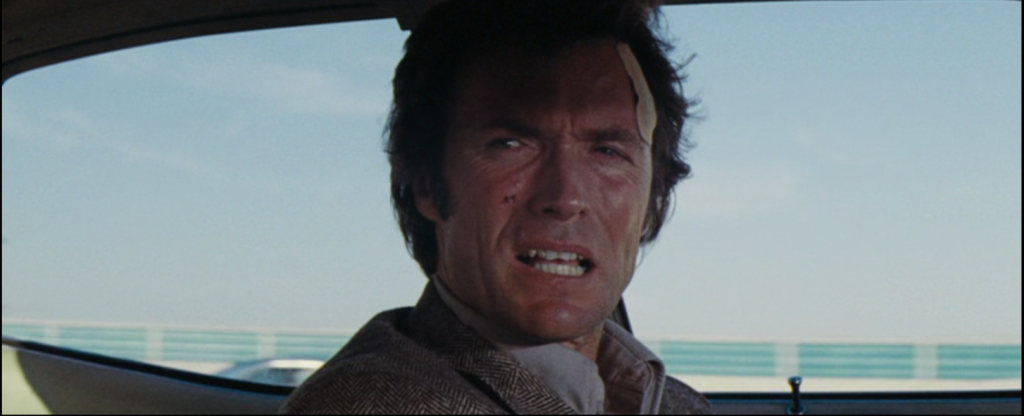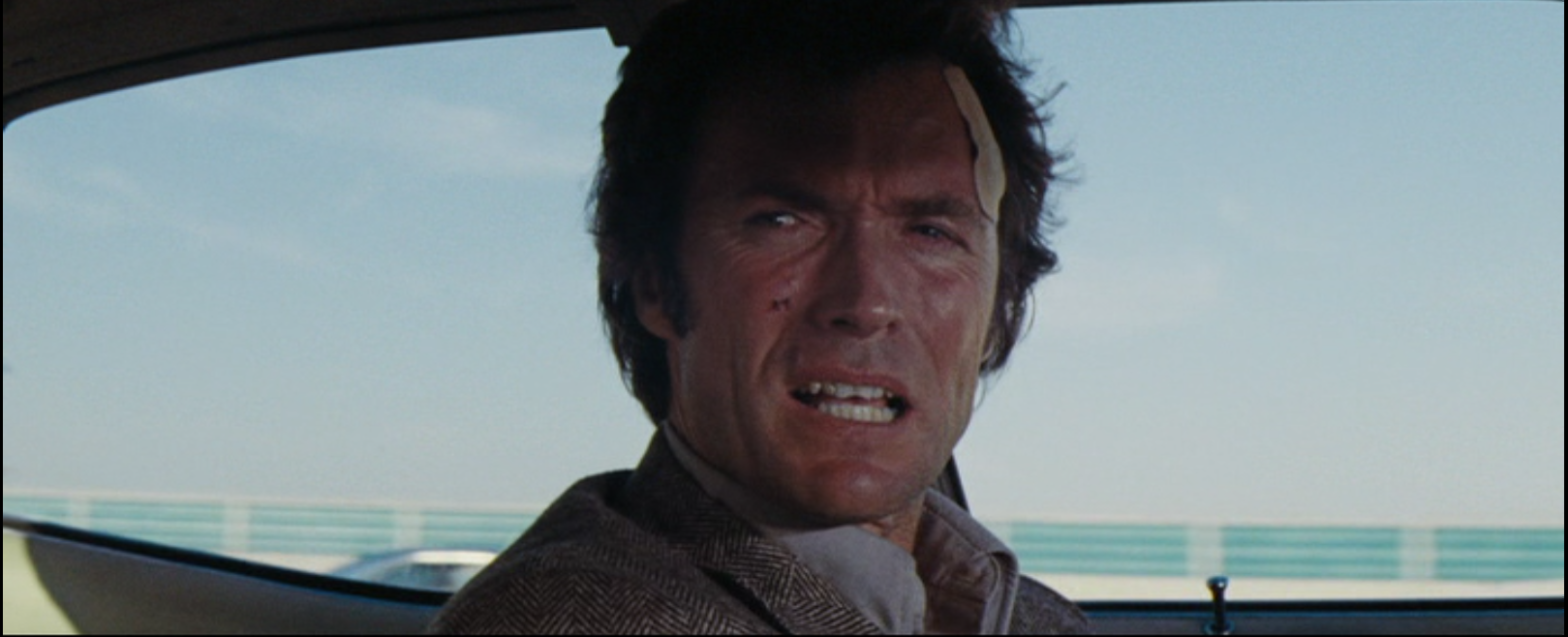Movie Review: Magnum Force (1973) directed by Ted Post
San Francisco is a city riddled with crime. Police Inspector “Dirty Harry” Callahan (Clint Eastwood) knows too well that the system is often rigged in the favor of criminals. Sometimes it seems like the police are drowning in regulations and procedures. He does what he can by skirting the rules, but what if the police could in fact just kill anyone they knew was a criminal?

Labor racketeer Carmine Ricca (Richard Devon) has just been acquitted of murder on a technicality, the evidence of his guilt having been ruled inadmissible. This apparently happens to him a lot. On the way home, his car is stopped by a motorcycle cop, who asks for the license and registration. The alleged mobsters consider this an annoyance right up until the cop shoots them all dead.
Meanwhile, although Callahan has rejoined the force despite his misgivings during the Scorpio Killer case, he’s currently off Homicide and on stakeout detail with his new partner Early Smith (Felton Perry). He clashes with Lieutenant Briggs (Hal Holbrook), who derides Harry’s violent tendencies and openly wonders why Inspector Callahan has driven out of his way to view the Ricca killing.
Rather than return directly to the stakeout, Harry and Early head out to the airport for lunch at a dining spot operated by one of Harry’s old friends on the force. Thus they’re on hand when a hijacking situation takes place, and Harry is able to take out the hijackers.
Later that evening, Callahan arrives at the police firing range, where he first meets veteran motorcycle cop Charlie McCoy (Mitchell Ryan) who’s now divorced and harboring thoughts of suicide, and complains that cops aren’t allowed to shoot “hoods” (despite Dirty Harry’s frequently doing just that.) Then Harry meets four new motorcycle officers, Davis (David Soul), Sweet (Tim Matheson), Astrachan (Kip Niven) and Grimes (Robert Urich). They’re all excellent shots, especially Davis, and have a strong bond.
Soon, a gangster’s pool party is massacred with no survivors, a murderous pimp is shot very dead, a bisexual drug kingpin and his sex partners are killed…and a cop is also murdered by the mysterious motorcycle officer. It’s clear that no survivors are to be left to testify.
After their current stakeout ends violently but successfully, Early and Harry are reassigned to Homicide. Callahan has a sneaking suspicion who the vigilante killer is, but Lt. Briggs is sure it’s Ricci’s rival crime boss Palancio (Tony Giorgio) and orders the inspector to concentrate on him.
Eventually Harry figures out who’s really behind the Magnum killings, but that only exposes him to deadly danger–without his gun! Does this man know his limitations?
This second Dirty Harry was something of a reply to both critics who thought Callahan was a “fascist” and misguided fans who had bought into a narrative where killing criminals without trial or procedure was an acceptable way of doing justice. Thus this time Harry is up against a police death squad like the ones that had recently been in the news in South America. Dirty Harry may hate the system, but he recognizes that some system is necessary to proper functioning of the police and courts. He’s careful not to kill civilians, and rather than just execute criminals, he maneuvers himself into situations where lethal force is “justified” and then uses it. And notably, he guesses wrong about the criminal’s identity initially–Harry’s not omniscient.
Callahan’s “hates everyone equally” is dialed back a bit in this one. He does not object to his black partner, and is less concerned about other officers’ sexuality than their competence.
Less good is women throwing themselves at Inspector Callahan with no effort on his part. (The writer of the first movie also objected that this just wasn’t the kind of thing Harry should be doing.)
Very good are the car chases and the violent bits. This is an action movie, however political.
Content notes: Violence, some bloody. Though it’s just off camera, the drain cleaner being forced down a woman’s throat is particularly brutal. Male and female nudity, extramarital sex. Drug abuse. One of the criminals is gratuitously racist towards Early (N-word), general foul language. The motorcycle cop stopping vehicles and then shooting the occupants may resemble certain real world events too closely for some viewers.
Overall: Clint Eastwood liked this one the best of the Dirty Harry films, and it’s easy to see why. It’s a superior “cowboy cop” movie that allows Inspector Callahan to show his lines that must not be crossed.

